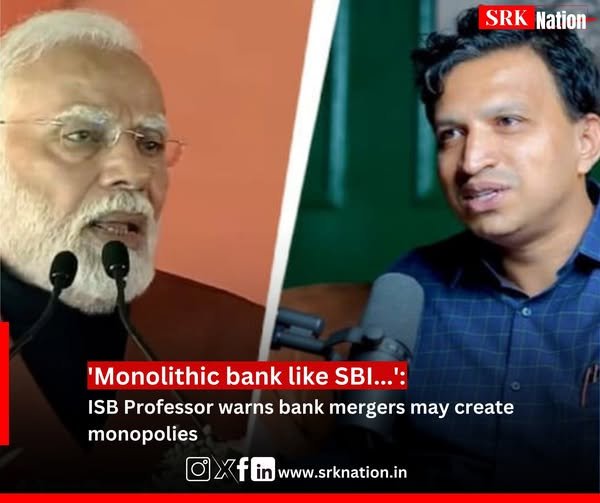Prasanna Tantri, economist and professor at the Indian School of Business (ISB), has raised concerns about India’s banking credit facilities, criticizing the Centre’s push to merge smaller banks. In a podcast, Tantri warned that this approach could undermine credit accessibility and hurt entrepreneurship in India.
While acknowledging the government’s efforts in improving access to savings, Tantri stated, “I said I’m not a big fan of Modi 2.0. While the Modi government solved access to savings — they have not been able to solve access to credit. These two are very different.”
He elaborated on the challenges of India’s current banking infrastructure, pointing out that trust dynamics in lending are fundamentally different. “Access to savings is — the saver has to trust the bank. That’s easy. People trust the government and banks. Access to credit is reverse. The bank needs to trust the borrower. You can’t do this through a Mudra kind of a scheme,” he said while speaking to PG Radio.
Tantri expressed concerns about the inefficiency of large banks in addressing the financing needs of small businesses. “If you have a large monolithic bank like SBI, they will not waste time on understanding who you are, what is your business, and all that. You need specialized smaller banks and the ability to lend based on cash flows,” he explained.
The economist emphasised the importance of promoting relationship banking, where lenders focus on understanding borrowers’ cash flows rather than relying solely on collateral. “Smaller kinds of lenders should be able to understand the borrower and then lend based on cash flows. We need to promote cash flow-based lending,” he asserted.
The ISB professor criticised the government’s reliance on large – scale credit schemes, stating, “We are doing it (credit) through government-sponsored schemes. That is not the solution. Credit does not happen like this. I don’t know what is happening in Mudra loans. Bankers will find a way to evergreen the loan. That is not going to solve the problem.”
Tantri also pointed out flaws in the valuation of collateral in the current system. “Many people in RBI and others don’t get this point. They think you have given Rs 100 as security and I’ve given you Rs 80 loan. I’m safe. But they don’t understand that when you default, that 100-rupee security will not sell at 100 rupees. It will sell at 50 or 40 — you’re not safe at all,” he said.
The merging of banks and the closure of Non-Banking Financial Companies (NBFCs) further exacerbate the problem, Tantri argued. “Two days ago, there was an NBFC which was shut down. We are trying to shut down NBFCs. The government is also merging banks and making them larger. So, access to credit is one of my bigger complaints that I have,” he said.
According to Tantri, the lack of an effective credit infrastructure could have long-term repercussions on India’s growth and innovation potential. “If we don’t improve on that, we will not have growth, we will have monopolies.”

See insights and ads
पोस्ट को प्रमोट करें · Promote post
Like
Comment
Send
Share






